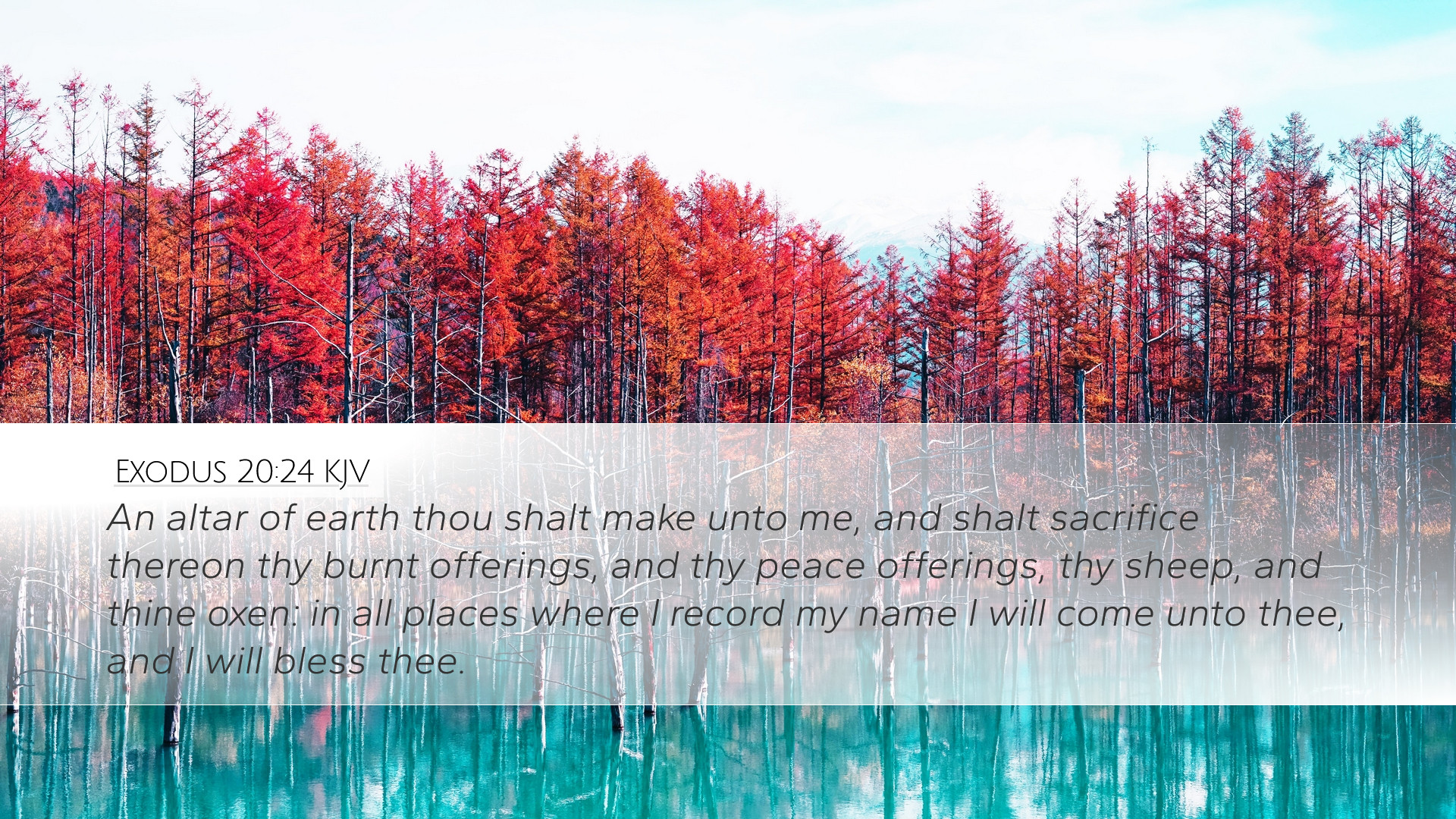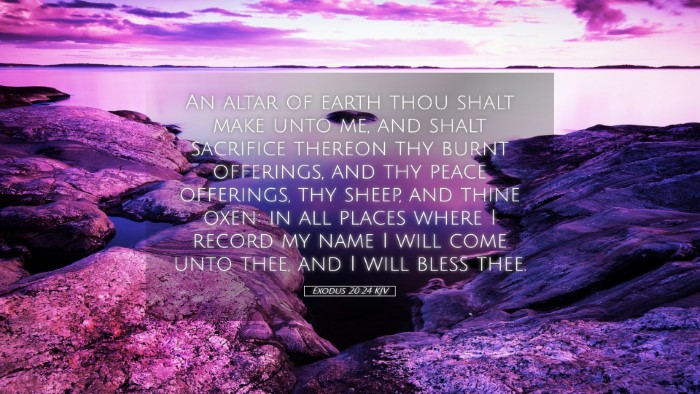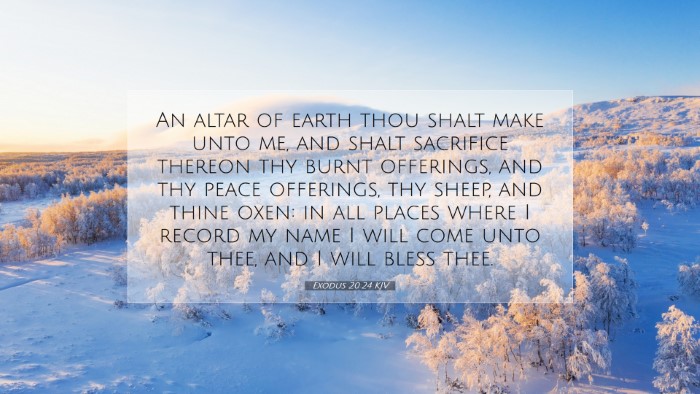Commentary on Exodus 20:24
“An altar of earth thou shalt make unto me, and shalt sacrifice thereon thy burnt offerings, and thy peace offerings, thy sheep, and thine oxen: in all places where I record my name I will come unto thee, and I will bless thee.”
Introduction
This verse is part of God's instructions to the Israelites following the giving of the Ten Commandments at Sinai. It addresses the manner in which offerings should be presented to the Lord. In Exodus 20:24, God emphasizes the significance of the altar as a means of encountering His presence and receiving His blessings.
Significance of the Altar
Nature of the Altar
Matthew Henry emphasizes that the altar signifies the very essence of worship. He notes that it is not merely a structure but a place designated for communion with God. The command to make an altar of earth reveals the principle that worship should be accessible to all, devoid of luxury and ostentation.
Albert Barnes elucidates that the altar of earth symbolizes humility and simplicity. It creates a stark contrast to the elaborate altars of pagan nations, which often involved costly materials and excessive adornment. This simplicity aligns with God's intention to establish a direct relationship with His people, unmediated by worldly grandeur.
Types of Offerings
The passage specifies “burnt offerings” and “peace offerings,” which are essential to understanding Israel's covenant relationship with God. Adam Clarke provides a historical context regarding these offerings:
- Burnt Offerings: These were meant to be entirely consumed by fire, symbolizing complete surrender and dedication to God.
- Peace Offerings: These offerings, which allowed for communal feasting, represented fellowship with God and the joy of His blessings.
Clarke notes that both types of sacrifices express a desire for reconciliation and communion with God. This duality highlights God’s initiative toward building a relationship with His people.
God’s Promise of Presence
The latter part of the verse states, “in all places where I record my name I will come unto thee, and I will bless thee.” This assurance of divine presence and blessing is profound. Matthew Henry discusses the implications of God's promise:
- First, it signals the omnipresence of God; He is not confined to a specific locale but will meet His faithful anywhere they seek Him.
- Second, it infers God's willingness to bless His people, underscoring His grace and favor toward those who approach Him in faith.
Theological Implications
This verse serves as both a command and a promise, inviting reflection on the nature of worship. Albert Barnes asserts that worship isn’t bound by geography but is contingent upon the heart’s posture before God. An altar made of earth emphasizes that true worship originates from the heart, not merely from outward rituals.
Adam Clarke remarks that this promise carries a broader theological significance—it anticipates the coming of Christ, where true worship would be marked by spirit and truth rather than location. In John 4:21-24, Jesus tells the Samaritan woman that the place of worship is irrelevant to the genuine worshiper, echoing the sentiments expressed in Exodus 20:24.
Conclusion
Exodus 20:24 encapsulates essential principles of worship that remain relevant throughout biblical history. The simplicity of the altar, the nature of the offerings, and the assurance of God's presence and blessing create a robust framework for understanding how believers are to approach God.
This commentary illustrates that God desires a relationship characterized by genuine worship—one rooted in humility, sincerity, and faith. Pastors, students, theologians, and scholars can draw from this verse insights on worship's core elements today.


